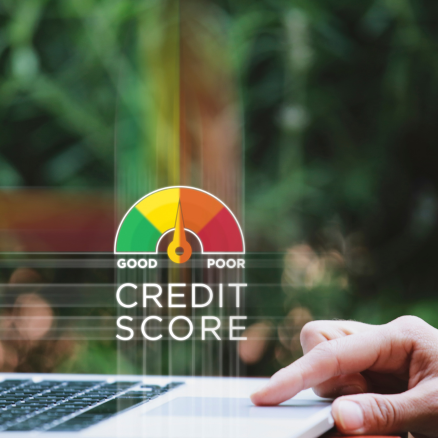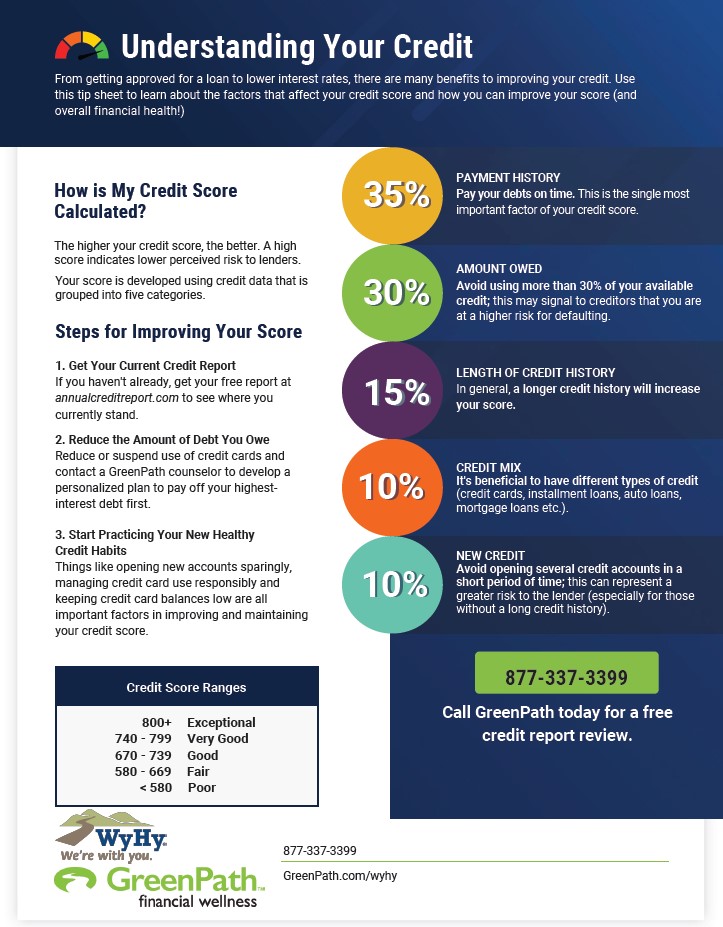Credit 101: Building Your Credit Score

What Goes Into Your Credit Score
Think of your score as a pie made up of five slices:
-
Payment History (35%) – Always pay your bills on time. Even one late payment can hurt.
-
Amount Owed (30%) – Keep balances low on your credit cards. Using more than 30% of your available credit looks risky. This is known as the 30% Rule.
-
Length of Credit History (15%) – The longer you’ve had accounts open, the better. This is why starting young matters.
-
Credit Mix (10%) – Lenders like to see a healthy variety (credit cards, student loans, maybe even a small auto loan later).
-
New Credit (10%) – Opening too many accounts at once can signal red flags. Be selective.
The 30% Rule
Steps to Start Building Credit
-
Check Your Credit Report
WyHy members can access their credit score for FREE through SavvyMoney in digital banking or the WyHy app. It’s like having a built-in financial coach that helps you see the impact of your credit decisions and plan smarter moves. -
Use Credit Wisely
If you get a credit card, treat it like training wheels. Use it for small purchases (like gas or groceries) and pay it off in full each month. -
Practice Good Habits Early
-
Don’t open too many accounts at once.
-
Pay every bill on time, every time.
-
Review your spending so you don’t get caught off guard.
-

